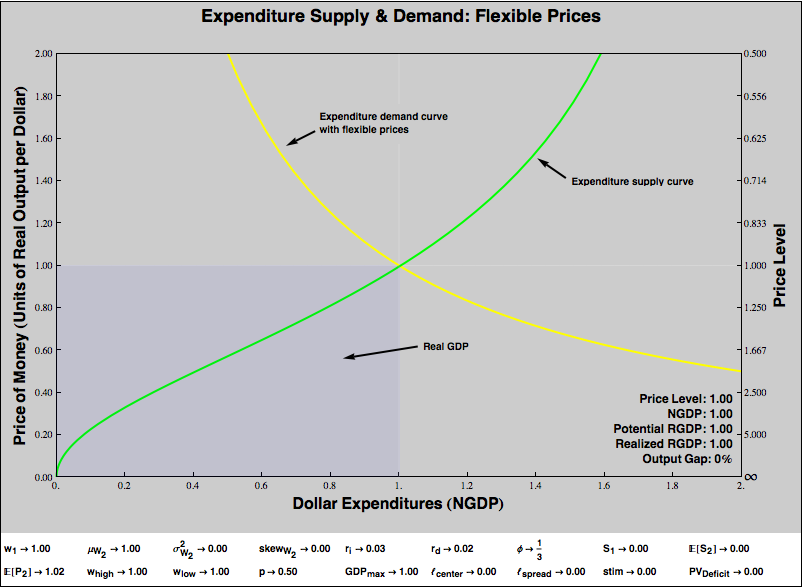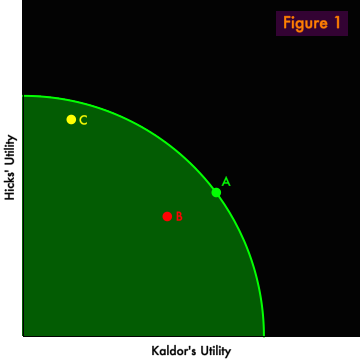Interfluidity Tax price not value
Post on: 25 Июнь, 2015 No Comment

Tax price, not value
Property rights are primarily rights to exclude. If I own something, what that means is that it is legitimate for me to exclude others who may wish to use or consume it.
Exclusion, very obviously, carries externalities. My choice to exclude alternate uses of a resource affects those who might have benefited from those uses. By convention, we dont usually refer to the effects of the exclusion at the core of a property right as an externality. One could argue, as is often argued of so-called pecuniary externalities , that the effect of property rights on alternative users is the sort of externality that should not be discouraged because undoing the externality would amount to a mere redistribution rather than a welfare gain, or because the operation of the externality is part and parcel of the process by which the market system functions. But, as with pecuniary externalities, there are devils in details .
The social cost of the excluding alternative uses varies dramatically between resources. A Ferrari, for example, may be a costly and valuable resource, but it is plausible to claim that its owners exclusive control does not subject potential alternative users to real deprivation. On the other hand, the exclusive right to commercialize a potentially lifesaving medicine may impose huge costs on potential users deprived of access because a patent owner has chosen not to make a drug available where they live, or has chosen to set an inaccessible price. The new urbanists (Yglesias / Avent / Glaeser ) frequently argue that homeowners ability to exclude alternative uses of their neighborhoods (a kind of tacit property right ) imposes very large social and economic costs by preventing higher-density alternative use of uniquely situated real estate.
I presume that most ordinary property rights dont burden alternative users so much as to merit policy intervention. It is wise to simply tolerate very small externalities and address their consequences collectively, rather than create annoyances and transaction costs by trying to impose fine-grained discipline. We dont tax humans for eating beans, despite the fact that methane is a powerful greenhouse gas.
But for some classes of property, most notably patents and real estate, a tax on the externalities of exclusion might be very sensible. You can frame it as a Pigouvian tax, or alternatively as a kind of user fee that compensates the state for its enforcement of a right to exclude despite external harms. But on what basis should such a tax be collected?
Usually property or wealth taxes are levied against the market value of an asset, with the scare quotes particularly appropriate. When property taxes are assessed against real property, some appraisal or estimation has to be made of what is often an entirely hypothetical value. Assessment procedures are vigorously contested and frequently reflect social and political concerns unrelated to the question of what a property would sell for. Patents are extraordinarily specialized and illiquid assets. Any bureaucratic value assessment would be a farce.
There is, of course, a much easier way to gauge what a property would sell for: Solicit from its owner a price.
The price at which an owner would be willing to sell a thing has a particularly valuable characteristic. It limits the burden to alternative users of the exclusion in a property right. If the price is set low, a user harmed by exclusion can simply purchase the thing and have at. If the price is set high, alternative users may be seriously burdened yet be unable to buy access.
So, for the sorts of exclusion that do impose substantial burdens to alternative users, a natural policy intervention would be to require property owners to declare a price at which they commit to sell the property (for some period of time), and levy a tax of some legislatively determined percentage against that actual, actionable price, rather than a hypothetical market value. Property owners could pay as much or as little tax as they choose. When they set their price, they face a trade-off, between the risk of being undercompensated for losing the asset if the price is too low, and an exaggerated tax burden if they set a price so high that the risk of sale is negligible or the required overcompensation extreme. The owner is free to choose how much she values certainty of continued ownership, but she must pay for that.
The price set by the property owner might constitute an option to buy for all comers, or just for the state. (Im not sure which would be best. What do you think?)
This sounds very dry and complicated, but ultimately its a simple and natural scheme. Suppose that a drug company invents a cure for a rare tropical disease that could cure thousands in the developing world but only hundreds domestically. It might well be the case that the profit-maximizing commercialization strategy would be to make the drug available at a very high price domestically, but not sell it cheaply in poor countries, to prevent reimportation from cannibalizing sales. As long as the tax rate is material, the drug company would try to set its price no higher than the discounted value of domestic profits, less the discounted cost of the new tax. However, since the social value of the drug if the patent were not used to exclude is much higher than that market value of the profits, governments and nonprofits could pool funds to buyout the patent. In theory, this can happen already governments and nonprofits could band together and negotiate with drug companies to buy out patents. But the coordination costs of that are very high, and once interest has been signalled the patent owner has every incentive to hold out for a price very near the drugs social value, which is much higher than the market value it would otherwise have realized. A tax on enforcement of exclusion would force all patent holders to decide a value and precommit to a price without the negotiating advantage of knowing they have a captive buyer. Of course, if a company thinks a public-interest buyout is very likely, it might set its price high in hopes of earning a windfall gain from a sale. But there are limits to that strategy unless a swift buyout is certain. The cost in overpayment of taxes and the risk that a buyout wont actually happen increases with the level at which the price is set.

Firms will set a dear price on patents with such high and unique social value that a prompt buyout is inevitable. But as long those patents are genuinely for new, nonobvious inventions admittedly a weak point! thats arguably a feature, as the scheme creates incentives that dont now exist for firms to develop goods with high social value but low market value. At present, there is no functioning market in public-interest sales of patents. Instead, firms understandably avoid high-social-value, low-market-value projects. Given the negotiating realities and political perceptions surrounding licensing or sale of patent rights to the public sector, the prospect of a high payout is offset by risks of outright expropriation and public relations catastrophes.
Urban property is another domain where the externalities associated with enforcing exclusive property rights are arguably very large. Suppose a developer or a city government believes that a neighborhood is horrifically underutilized, and wants to redevelop it at high density. Under this proposal, every parcel in the neighborhood would have a prearranged price. The developer (with or without a requirement of political buy-in) could plan to buy the lots she needs and those of near-neighbors with effective veto power. and then do with them what she will. As with patentholders, for most homeowners the best strategy would be to set the price at the actual value that would compensate them for the loss of the house and the trouble and heartache of eviction from their home (which might be a lot!), less the discounted cost of expected taxes. As with patents, some homeowners might strategically try to set very high prices in hopes of a windfall buyout, but again, thats a costly and self-limiting strategy, unlikely succeed except in very rare cases where some parcel is so unique that alternative development plans that exclude it cannot compete. A real problem here is that this scheme would disadvantage property owners so cash poor they cannot afford any substantial taxation, who might set prices below what would actually compensate for the loss of property. But then these property owners have a hard time paying existing property taxes too. That devil would live in the detail of arranging the actual tax burden.
Just what should the tax rate on stated price be? Should it be a flat or progressive? I dont know. Maybe some clever modeling can be done to try to elucidate the issues. Qualitatively things are pretty clear: the higher the tax rate, the more costly it will be to enjoy the rights of exclusion that come with property ownership. Thats already true with any sort of property tax. This new sort of property tax simply gives the owner the right to pay the tax in cash or in risk of being forced into a sale. A low tax rate, especially the status quo zero tax rate for patents, is very comfortable for property holders. It encourages people to set an infinite sticker price and so force potential buyers to reveal themselves as needful in bespoke negotiations. A high tax rate would be less comfortable. Owners would be forced to either pay up for the right to exclude or bear real risk that their property will be bought-out for a higher value use. In each domain patents, real estate, whatever legislators (or city councilpersons) would have to balance the social benefits associated with certain and inexpensively maintained property ownership, the social costs of excluding high-value alternative uses, and of course revenue requirements.
There are more radical, arguably better, solutions to problems created by socially costly exclusive use of real or intellectual property. But within the confines of incremental, neolibbish ideas, I think this one merits some consideration.
This proposal owes something to a recent conversation with Leigh Caldwell (@leighblue ), the king of prices. The good ideas are his. The crappy ones are mine.
Related elsewhere:














